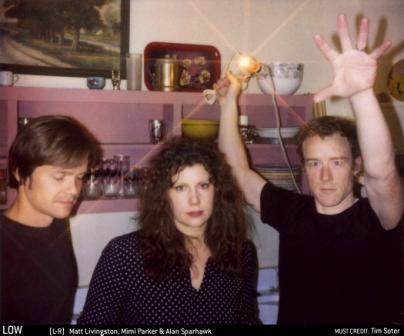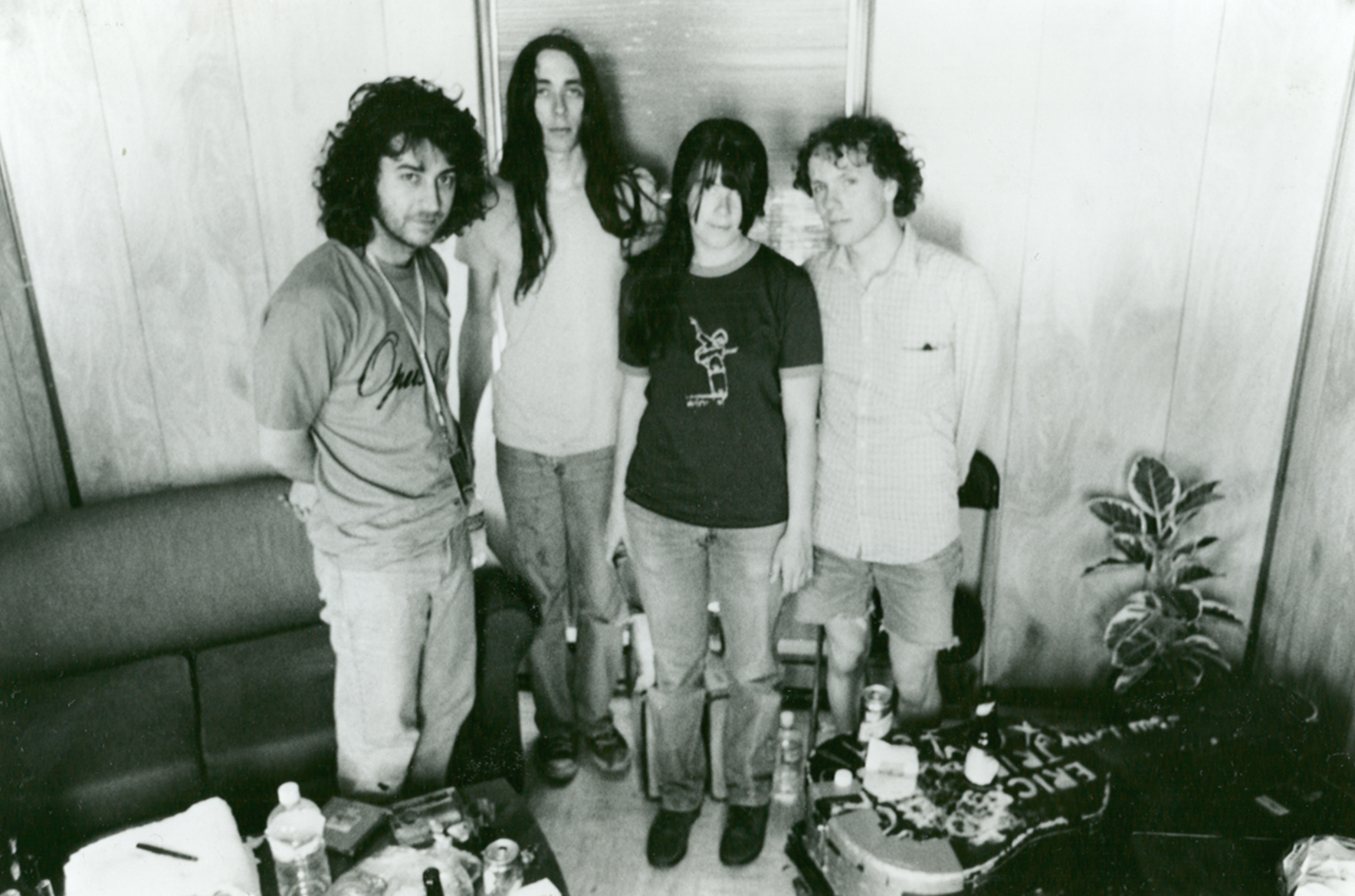Shuttling between studios in Amsterdam, Dusseldorf, and Cologne, Mouse on Mars’ Jan St. Werner and Andi Toma have also been aural astronauts for over a decade. With each of their nine full-lengths differing wildly from the last, their capacity for experimentation is as impressive as their longevity.
“We were never in risk of becoming a major band,” says St. Werner before embarking on a nine-city tour of the U.S. this month. “Major companies were interested in what we did but very quickly realized they couldn’t make us into a product.”
It’s just as well. They’ve bounced from longtime label Thrill Jockey and their own Sonig imprint to Mike Patton’s Ipecac for their latest studio album, Varcharz. Recorded during the same sessions as 2004’s Radical Connector, universally viewed as Mouse on Mars’ closest brush with commercially accessible dance music, the sonically arresting Varcharz couldn’t be more its opposite.
Ipecac’s roster is stocked with artists connected by similar strands of extremity: hip-hop group Dälek, instrumental metal band Isis, guitar terrorists the Locust, and local violinist Eyvind Kang among them. Fittingly, St. Werner views his band not as purely electronic (“It’s nearly a nostalgic thing to do in times where it’s just part of any production process,” he says) but as “more like a research thing, where you look for extremes or borders.”
“I personally never liked electronic music; I’ve always found keyboard players really the worst guys in the band,” says St. Werner.
“We’ve tried to break the aesthetic of electronic music and create something that’s more organic, or, in a hybrid way, more organic than organic music would be! You always have this image of ‘this sounds like a guitar, this sounds like a bassoon,’ and I always found it limiting,” he says.
“I tried to create a much more abstract idea of what could be the sound-giving device.”
The band has relaxed about using synths, which made the biggest appearance on Radical Connector, but Varcharz‘s aesthetic is less like dance-pop and more like the metal bands St. Werner likes. “I really like Mortician, Morbid Angel—quite skilled, quicker stuff where the sound comes through like a certain overload of information, and still there is precision in there,” he says. “I like this tension between something very precise and something totally exaggerated.”
That mind-set comes through in Mouse on Mars’ production style, which continually defies categorization.
“Sometimes I feel we’re close to new classical music, or traditional folk music where people play fast and want to create a situation with the audience where you dance and play with culture. Make culture twist and tumble in a way, like a polka or Gypsy brass band.”
A cursory listen to Varcharz—full of aggressive, alien textures and seemingly infinite layers—inspires no such comparisons, but deeper mind-melds with it reveal that each song has a structure, however unconventional. Even “Retphase,” the one most likely to make you wince in confusion, is arranged as a group of track IDs that are like the tuning dial of a darkly cosmic radio band. It brings to mind the effects of the psychedelic DMT, described like this in Terence McKenna’s Food of the Gods: “The world becomes an Arabian labyrinth, a palace, a more than possible Martian jewel, vast with motifs that flood the gaping mind with complex and wordless awe. . . . Here is the realm of that which is stranger than we can suppose.” He suggests that “entities” visit and offer the gift of new language, which blindly fearless DMT users have tried to write down as they come off the drug.
You’ll preserve brain cells by simply listening to Varcharz, though you may get equally and totally lost in its transmissions. It happens to St. Werner each time they perform.
“We’re sometimes too taken away by the music, too fascinated,” he says, but they deliberately write with immersion in mind. “I think that’s the interesting thing about music; you can create this sound and you’re fully in there, but you don’t fully understand. . . . We still think there’s so much to explore and comprehend about what sound is, and what you can do with these particles,” says St. Werner.
But what if he and Toma were born in a different time, unable to use machines to make music?
“I’d like to have the challenge of not being able to do anything that’s using electricity,” says St. Werner. “We’d probably become classical composers. Or inventors that would try to create devices like a player piano that’s able to play things no human being could play.”
In any era, Mouse on Mars would sound out of this world.







